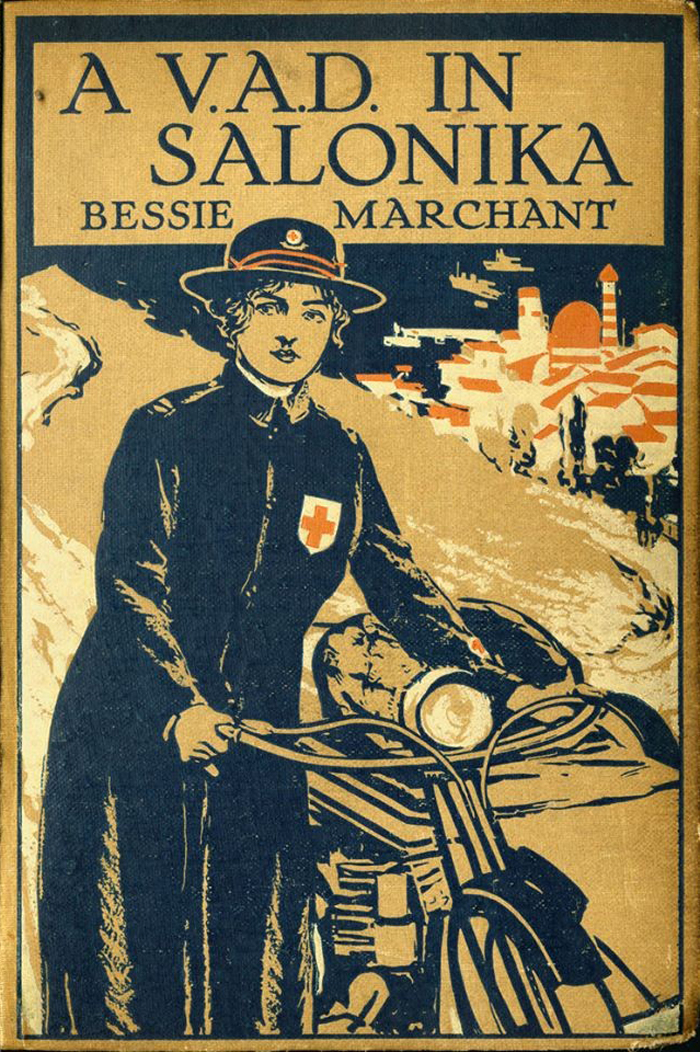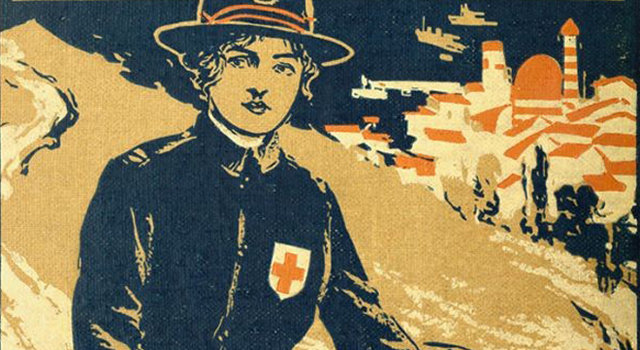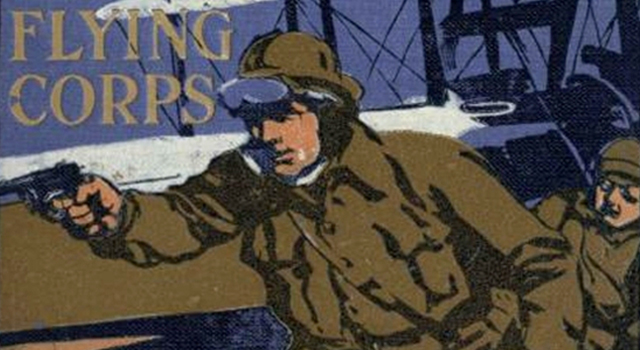Articles
No Comments
By Voices
On 17, Nov 2014 | No Comments | In Childhood | By Voices
The Silenced War
Fiction for Children across World War One
Prof Jean Webb, University of Worcester
The attitudes toward warfare in Britain leading up to World War I were deeply rooted in nineteenth-century notions of masculinity embedded in adventure stories for boys and therefore, by polar opposition, in the domestic construction of the feminine.
 These were the values of the British Empire i.e. endurance, valour, honour, self-sacrifice and patriotism with war tending to be constructed as a great game. Such childhood reading ideologically influenced the men who volunteered to enlist in World War One to protect those values. There were a few books for girls principally by Bessie Marchant which emphasised the ‘clichéd’ part women played in the war and silenced other aspects of domestic life on the Home Front.
These were the values of the British Empire i.e. endurance, valour, honour, self-sacrifice and patriotism with war tending to be constructed as a great game. Such childhood reading ideologically influenced the men who volunteered to enlist in World War One to protect those values. There were a few books for girls principally by Bessie Marchant which emphasised the ‘clichéd’ part women played in the war and silenced other aspects of domestic life on the Home Front.
![Burton of the Flying Corps, by Herbert Strang, 1916 [Image: Project Gutenberg]](http://www.voicesofwarandpeace.org/wp-content/uploads/2014/11/flying-corps-r700.jpg) Fiction for children just prior to and across the period displayed patriotic patriarchal adventure stories heightened with fervoured romance silencing the realities of the experiences of World War One. It was not until 1935 with Captain W.E. Johns’ Biggles Learns to Fly that loss of comrades and the effects of fighting entered fiction for children.
Fiction for children just prior to and across the period displayed patriotic patriarchal adventure stories heightened with fervoured romance silencing the realities of the experiences of World War One. It was not until 1935 with Captain W.E. Johns’ Biggles Learns to Fly that loss of comrades and the effects of fighting entered fiction for children.
The War years and the aftermath are framed by the Arcadian fantasies of Kenneth Grahame with The Wind in the Willows (1908) and A.A. Milne’s Winnie-the Pooh stories (1926) which presented protected enclosed idyllic worlds far removed from war and retreating from the deep social and political concerns of Grahame and the horrors which Milne has experienced as a combatant.
There are still other silenced voices, the voices which could tell either through realist modes of writing or surrealism or fantasy the lives of those who had to stay behind, the lives of the women who maintained the Home Front so that there was a domestic idyll to which to eventually return.
Books from the period:
Kenneth Grahame, The Wind in the Willows (1908)
Herbert Strang, A Hero Of Liége (1914), Fighting With French: A Tale of the New Army (1915), Burton of the Flying Corps (1916), Tom Willoughby’s Scout: A Story of the War in German East Africa (1918)
F.S. Brereton, With Joffre at Verdun: A Story of the Western Front (1916)
Bessie Marchant, A Girl Munition Worker: The Story of a Girl’s Work During The Great War (1916), A V.A.D. in Salonika (1917)
Alice Massie, Freda’s Great Adventure (1917), A Transport Girl In France: The Story of the Adventures of a WAAC (1919)
Alice B. Emerson, Ruth Fielding At the War Front or The Hunt For The Lost Soldier (1918)
Brenda Girvin, Munition Mary (1918)
A.A. Milne, Winnie-The Pooh (1926)
Captain W.E. Johns, Biggles Learns To Fly (1935)





Submit a Comment